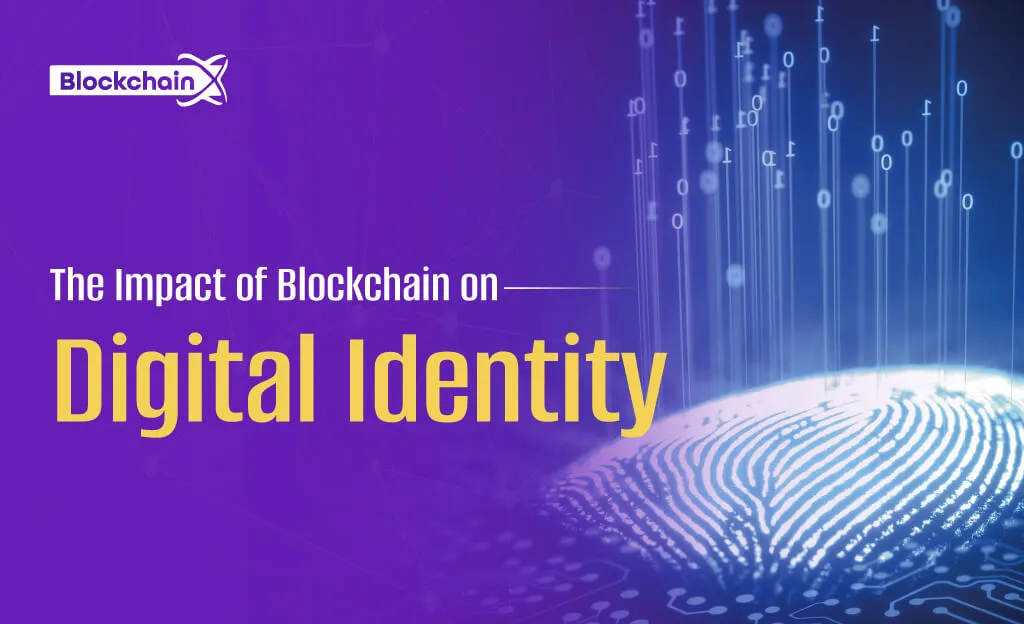Table of Contents


The Impact of Blockchain on Digital Identity
Digital Identity Management (DIDM) is a system that connects individuals with their online identities. We can say that this is one of the oldest and toughest problems in the digital world. Security and privacy are major challenges facing online identities, and no matter how many new technologies come along, they also have their drawbacks.
The fast-evolving blockchain technology offers new approaches to address the privacy and security challenges of the DIDM problem, leading to the risk-free use of private transactions without the help of a third party. Architecture based on blockchain technology provides an ideal path for DIDM. Let's get straight to the topic without further ado.
What is Digital Identity?
Digital identity is the online indication of an individual or association and contains details about their online actions and relations. These details may contain someone's name, email address, social media accounts, online shopping habits, and online behavior and prominence. Digital identity has evolved into such an important part of identity as a whole that it is important to comprehend and control it. A key reason why digital identities are so significant is that they usually form the base of multiple online interactions, such as accessing online usefulness and performing dealings.
For example, when you enter a new social media account or make an online buy, you have to provide private details such as your name, address, and payment information. This data is used to create a digital identity and enable the key to this usefulness.
Security and Privacy Challenges of Digital Identity
Security and privacy are essential concerns when considering digital identities, as the collection, storage, and usage of exposed details can pose serious risks.
1. Data Breach: Private details can be robbed or spread, which guides identity theft, fraud, and other malicious activities.
2. Centralized storage: Keeping private details in a centralized database makes a single moment of loss and makes it an effortless target for detractors.
3. Invasion of privacy: Companies, governments, and other entities may misapply or manipulate private details without your permission, which disregards a person's privacy rights.
4. Authentication: It is difficult to confirm that users are who they say they are, and counting on passwords independently is no longer satisfactory.
5. Interoperability: Additional digital identity procedures may have additional standards, permitting users to change between platforms.
Effectiveness of Blockchain for Digital Identity:
Security
Security is one of the key factors influencing the future development of blockchain-based digital identification businesses. A blockchain uses encryption and unchangeable storage to protect data. Additionally, it offers security via cryptography to protect digital identity data. Blockchain technology can help ensure that digital identity is secure and easily traceable.
Privacy
The next key value of blockchain-based digital identification is privacy, as authorities encourage discussions about protecting individuals' private and sensitive information. Blockchain encryption efficiency and digital signatures help “privacy and design”. Also, all transactions can be made immutable with digital signatures.
Integrity
A digital identity system based on blockchain will provide the flexibility to track each identity across all network nodes. Regardless of how data is shared via peer-to-peer networks, unchanging updates, and identity checks confirm its reliability. Another method to comprehend the significance of “What is Digital Identity on Blockchain” is to understand that the Blockchain network does not have a single point of loss. Therefore, breaking the integrity of digital identification data can be challenging for hackers.
Trust
The advantages of blockchain-based digital identity systems mainly emphasize the benefits of reliability. Blockchain-based systems follow the communication details of a distributed log and consensus systems sustain cross-node data authentication. Another encouraging factor of decentralization for digital identities is the overall benefit of nationwide IDs by many organizations.
Simplicity
Blockchain solutions for digital identities also offer simplicity as a key advantage. Blockchain frameworks should be able to simplify the associated operations of each stakeholder. Identity management frameworks created on blockchain may clearly explain the procedures of identity issuers, owners, and verifiers.
Future Enhancements:
Blockchain technology can seriously influence the future of digital identity. This innovative system provides a secure, transparent, and decentralized medium for private details management and storage.
The demand for secure and efficient identity verification techniques is on the rise in the world. And blockchain-based solutions are likely to evolve into a main player in the digital identity space. A key benefit of using blockchain for digital identities is that it decreases the risk of forgery and identity theft. With blockchain, private data is saved in a circulated ledger maintained by a network of computers.
Also, blockchain transparency creates it easy way to track and audit differences in transactions and stored details. Traditional identity validation procedures usually concern numerous intermediates, each of whom must validate the details and hand it on to the following step. Blockchain-based digital identity resolutions are better efficient and cost-effective than traditional procedures. Which leads to a long, complicated, time-consuming, and expensive process. Blockchain makes identity validation quick and efficient, decreasing the price and complexity of the procedure.
Wrapping Up:
Identity is crucial for an individual as it helps them to exercise their privilege to experience, obtain education, and utilize banking services. However, given the issues existing systems have with identity management, reforms are required. The social and economic well-being of people worldwide is increasingly conditional on digital identification.
Integration of blockchain with materializing technologies such as AI and IoT further improves the abilities of digital identity solutions established on blockchain technology. It builds a more secure, trusted, and efficient digital identity ecosystem by adopting blockchain-based digital identity solutions by governments, businesses, and people is to grow in the coming years.





